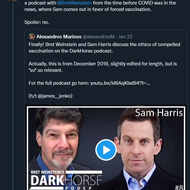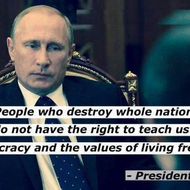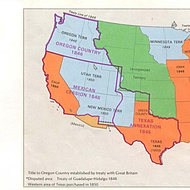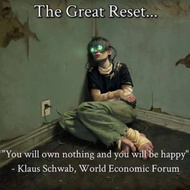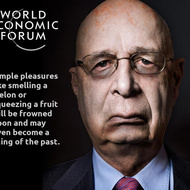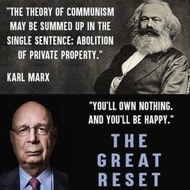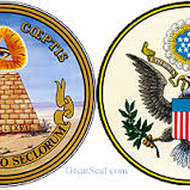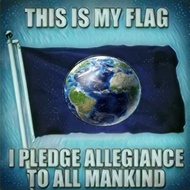(THE SAAD TRUTH_1443) Sam Harris's Pathological and Dangerous Trump-Based Consequentialism
Triggernometry - Sam Harris: Trump, Religion, Wokeness
: Trump derangement syndrome (TDS) - Trump derangement syndrome (TDS) is a derogatory term for criticism of, or negative reactions to United States President Donald Trump that are alleged to be irrational and have little regard towards Trump's actual positions or actions taken.
Paranoia is also a common symptom of TDS. Sufferers have been known to believe that they are in some way being persecuted when their Trump related beliefs are questioned.
The paranoia does however not seem to be bad enough to make TDS sufferers attempt to actually becoming informed and think for themselves.
If properly treated, suffers of TDS can make a full recovery. Many suffers have been known to grow out of TDS, yet many can only be treated by having their condition directly treated through the application of logical reasoning.
This Week in Stupid (22/01/2017) - Trump Inauguration Special

Be part of the movement!
Welcome to the community for those who value free speech, evidence and civil discourse.Create your free account
4 comments
Feel free to reply to any comment by clicking the "Reply" button.if Hunter Biden had corpses in his basement SAM HARRIS would not have cared
I guess him being liberal on paper at least means that he depends on the managerial class of experts he like to think he belongs too. And what made Trump scary is that he would not listen to the "experts" and would give voice to the peasants. And that is scary for those that depend on the system which treats "experts" as high priests with special privileges. Sam Harris sees himself as part of that class of "experts". That is why he is fine with talking about freedom of speech and debate etc as long as it does not compromise his position in society, than masks falls off and he shoes himself for what he is.
There was a podcast where Sam was pushing for forced jabs during "pandamic" because individuals, he said, have no right to put others at risk. We, the special class of experts, must mandate it to everyone.
I guess it's true what they say. Don't look at what people's opinions are, but what those opinions have made them out to be. It's easy to argue for principles, but it's hard to live by them.
In the event of Harris, the principles he became known for defending only apply to others , not to him. And if you look even closer, you will notice how critisizing religion, such as Christianity, and promoting freedom of argument and debate was not because he believed in principle itself, but because flouirishing of religion, such as Islam or Christianity, would mean he could not enjoy his privileged position.
This became very obvious when COVID lock-downs happened and he pushed for jabs in the name of "safety", exercising his privileged position of an "expert" over individual right or moral agency. And now with Trump, it is even more obvious because Trump would not listen to him.
And because he only lives in his echo chamber where other yes men agree with him, when he was on the show talking about Trump he was being honest in expressing his views, convinced that everyone already agrees, because that is the tiny little world of his echo chamber he lived for so long. He does not understand there are many other views. Hence for everyone else, he looked like a lunatic, while for him this is the way world is. And he was shocked or even in denial that others are not agreeing with him.
well...I don't kowtow to the democracy rhetoric & propaganda, as in "I pledge allegiance to the Republic..."
what is really strange is the facts that when it suits the democrats & democracy is that THEY push republic representation for minorities and control the majority with tolerance abuse for that minority and a passive aggressive belligerence is tolerate by the majority so as not to infringe upon the issues/complaints being leveraged
I find Sam Harris to be a hypersensitive bigot, racist, and hypocrite. He wants you to tolerate his views, ideals & philosophies through intolerance and thinks that through New Atheism his objectifications should simply not tolerate any opposing views and consistently, constantly be countered, criticized and challenged by rational argument but all argument is premeditated demagoguery. The very essence of leftist, liberal, totalitarian rationale. There's no reasoning rationally with specious diatribes based upon emotionalism and people stuck in denial. Many of the footsoldier minions are pawns on social media & do nothing but just constantly oppose, criticize, and try shame on you tactics, and can not tolerate logic or truth. Dinesh D'souza had a comment on that it was not discussion when it is constant shouting down, interrupting, and disrupting. Another one of those labelings of what you are according to them, that they themselves are actually doing.
Yes. My hypothesis was always that "spreading democracy" is used instead of spreading "republicanism", because it was slogan of the democrats who happened to be called, well democrats. To say spreading republicanism, would be almost as if they are promoting the opposing party. The Republicans.
You are correct. there are no democracies, there are republics. Although constitutional republics are dying out because constitution is either just a formality or it has been modified and expanded or its used as a shield to hide something else.
Funny also, if you noticed how the so called elites will call a process by which they win, a democracy , but when people elect someone they don't like its populism, lol usually used as a negative term.
Globalists also hide behind the term "democracy" and pretend its a moral center of the universe. And those that believe in democracy as a moral thing, should ask themselves why do they believe that?
“People use democracy as a free-floating abstraction disconnected from reality. Democracy in and of itself is not necessarily good. Gang rape, after all, is democracy in action. ” ― Terry Goodkind, Naked Empire
@Krunoslav there's an underlying truth to America and most are in denial of it, with freedom of religion to choose to believe or not, or just accept the premise not necessarily embrace it, instead of argue & crusade destroy it because if offends you, not very tolerant from the preaching of tolerance
my point is the cultural song My Country, Tis of Thee the 4th stanza is:
Our fathers' God to Thee,
Author of liberty,
To Thee we sing.
Long may our land be bright,
With freedom's holy light,
Protect us by Thy might,
Great God our King!
not many accept God as King of America, and thus the spiritual battle that is waged upon us all.
There's also an abolitionist version too. This version is against the entrenched democratic establishment and its perpetuation of slavery but it is also the first rewrite of something standard that I know of, AND by the Republicans who didn't exist at that time but were known as Whigs. A somewhat familiar tactic today by many different politicals
@Weltansicht Are you familiar with the concept of American Civil Religion?
American civil religion is a term given to a shared set of certain fundamental beliefs, values, holidays, and rituals by those who live in the United States of America. These shared values and holidays are based upon, parallel to, but independent of the theological tenets of each specific denomination or religious belief. The notion of a civil religion originated in the United States due to its origins as a religiously diverse nation. From the Pilgrim founders and the other Puritan groups to the numerous other groups fleeing religious persecution, the American nation had a unique experience and developed a system that allowed for maximum freedom of religion for individuals and groups while allowing no one religious denomination to dominate. In this context, the nation developed a religious, primarily Protestant ethos and set of values based on religion but not overtly based on any one tradition.
The term was coined by sociologist Robert Bellah in 1967. The article in which the term is coined, "Civil Religion in America," sparked one of the most controversial debates in United States sociology. Soon after the paper was published, the topic became the major focus at religious sociology conferences and numerous articles and books were written on the subject. The debate reached it peak with the American Bicentennial celebration in 1976.
The American civil religion emerged as a means to permit the creation of a distinct national set of values that was not tied to a specific confession. It permitted religion to play a fundamental role in shaping the moral vision of the country but in a way that removed theological concerns from the public arena.
Today, off course , generations of loser and loser moral code, and with more ideas to compete with and with subversion by Marxists, one might say that American civil religion is woke-ism or whatever we want to call it. But that is not the case in Islamic countries. Mainly because they did not adopt liberalism.
“Secularism in the Christian world was an attempt to resolve the long and destructive struggle of church and state. Separation, adopted in the American and French Revolutions and elsewhere after that, was designed to prevent two things: the use of religion by the state to reinforce and extend its authority; and the use of the state power by the clergy to impose their doctrines and rules on others. This is a problem long seen as purely Christian, not relevant to Muslims or for that matter to Jews, for whom a similar problem has arisen in Israel. Looking at the contemporary Middle East, both Muslim and Jewish, one must ask whether this is still true -- or whether Muslims and Jews may perhaps have caught a Christian disease and might therefore consider a Christian remedy.”
― Bernard Lewis, What Went Wrong? The Clash Between Islam & Modernity in the Middle East
I would say no, they should not. But the pressure is there , for sure.
@Weltansicht "There's also an abolitionist version too. This version is against the entrenched democratic establishment and its perpetuation of slavery but it is also the first rewrite of something standard that I know of, AND by the Republicans who didn't exist at that time but were known as Whigs. A somewhat familiar tactic today by many different politicals"
The topic of slavery in America is needlessly complicated one. There are many interpretation and self interests involved in it.
It seems hypocritical to me to claim "all men are created equal" by people who own slaves, or claim that they rebelled against British Empire because of taxation without representation, while they still own slaves, were the richest colony at the time, paid less taxes than most people in the British Isles. and to prove how morally superior they were, quickly they took land from the Indians and settle them on reservations. And did to similar extent with the Mexicans. Ever since than spreading of "Liberal Empire" continued. The chosen people will liberate and civilize others , weather they like it or not.
Why Liberalism Means Empire
Democracy isn't the end of history, it's a product of power.
In ironic way, Liberal Empire of the British was directly contained by American Colonies claiming they are morally superior.
Empire of Liberty
The Empire of Liberty is a theme developed first by Thomas Jefferson to identify the responsibility of the United States to spread freedom across the world. Jefferson saw the mission of the U.S. in terms of setting an example, expansion into western North America, and by intervention abroad. Major exponents of the theme have been James Monroe (Monroe Doctrine), Andrew Jackson and James K. Polk (manifest destiny), Abraham Lincoln (Gettysburg Address), Theodore Roosevelt (Roosevelt Corollary), Woodrow Wilson (Wilsonianism), Franklin D. Roosevelt, Harry Truman (Truman Doctrine), Ronald Reagan (Reagan Doctrine), Bill Clinton,[1] and George W. Bush.
In the history of U.S. foreign policy, the Empire of Liberty has provided motivation to fight the Spanish–American War (1898),[2] World War I (1917-18),[3] the later part of World War II (1941–1945), the Cold War (1947–1991), and the War on Terror (2001–present).[4]
Jefferson used this phrase "Empire of Liberty" in 1780, while the American revolution was still being fought. His goal was the creation of an independent American state that would be proactive in its foreign policy while ensuring that American interventionism and expansionism would always be of a benevolent nature:
We shall divert through our own Country a branch of commerce which the European States have thought worthy of the most important struggles and sacrifices, and in the event of peace [ending the American Revolution]...we shall form to the American union a barrier against the dangerous extension of the British Province of Canada and add to the Empire of Liberty an extensive and fertile Country thereby converting dangerous Enemies into valuable friends.
— Jefferson to George Rogers Clark, 25 December 1780[5]
Jefferson envisaged this "Empire" extending Westwards over the American continent, expansion into which he saw as crucial to the American future. During his presidency, this was in part achieved by his 1803 purchase of the Louisiana Territory from the French, almost doubling the area of the Republic and removing the main barrier to Westward expansion, stating that "I confess I look to this duplication of area for the extending of a government so free and economical as ours, as a great achievement to the mass of happiness which is to ensue".[6]
However, this was not necessarily a politically unified Empire. "Whether we remain in one confederacy, or form Atlantic and Mississippi confederacies, I believe not very important to the happiness of either part."[7] Despite this, Jefferson on other occasions seemed to stress the territorial inviolability of the Union.
In 1809 Jefferson wrote his successor James Madison:
we should then have only to include the North [Canada] in our confederacy...and we should have such an empire for liberty as she has never surveyed since the creation: & I am persuaded no constitution was ever before so well calculated as ours for extensive empire & self government.
— Jefferson to James Madison, 27 April 1809
Even in his later years, Jefferson saw no limit to the expansion of this Empire, writing "where this progress will stop no-one can say. Barbarism has, in the meantime, been receding before the steady step of amelioration; and will in time, I trust, disappear from the earth".[8]
While Jefferson spoke loftily and idealistically about an Empire of Liberty abroad, he also envisioned creating a new form of American imperialism closer to home. The scholar Richard Drinnon observed that Jefferson spoke of establishing more amicable relations with Native Americans on America's Western Frontier at his "second inaugural address".[9] During this address, Drinnon claims that Jefferson was quoted as stating that "humanity enjoins us to teach them (the Native Americans) agriculture and the domestic arts".[10] In practice, however, Jefferson's imperial policy and implementation of the ideal of an Empire of Liberty for North America's Native American population was radically different.
In Drinnon's view, there was a vast disparity between Jefferson's ideas and his actual actions. According to Drinnon, "Jefferson had initiated the Indian removal policy through his energetic efforts to "obtain from the native proprietors the whole left bank of the Mississippi." One major reason the lands of the aboriginal inhabitants had been so drastically reduced was Jefferson's acquisition of a hundred million acres in treaties shot through with fraud, bribery, and intimidation. And when Indians inter fered with white definitions of the national interest, as did the "backward" tribes of the Northwest in 1812, Jefferson's humanitarianism hardened: "These will relapse into barbarism and misery, lose numbers by war and want," he grimly pre dicted to John Adams, "and we shall be obliged to drive them, with the beasts of the forest into the Stony mountains."
@Krunoslav Are you familiar with the concept of American Civil Religion?
When I read all your stuff, particularly the Empire of Liberty I thought of the Manifest Destiny; which also carried over to the Confederate States of America, with dreams of after winning the Civil War for Independence, with plans to take over vast land areas of Central & South America to be cotton kings.
I vaguely remember maps in school about phases of Manifest Destiny. Plus a song with words of brotherhood from sea to shining sea.
BUT in all of it, it may seem hypocritical but that is viewing it from judgement of 21st century standards upon a very different world of centuries ago that evolved from civilization standards of a even more different worlds even further millennia ago. Slavery was a way of life, as was conquest.
So truly, are the wages slaves and people forever in debt to corporations any different than the slavery of long ago? and conquest? Do you really have choices of shopping at the grocer or is this the selection we have provided for you, to choose from, to reinforce and foster the delusion/illusion you are free? As your civilization keepers and leaders, we feel the need to request you eat ze bugs, because we told you to do so. Just like the vaxx jabs, if everybody just did what we said, we will get along just fine and dandy.
@Weltansicht I was not familiar with ; Manifest destiny - This is what I found.
Manifest destiny was a cultural belief in the 19th-century United States that American settlers were destined to expand across North America.
There were three basic tenets to the concept:
The special virtues of the American people and their institutions
The mission of the United States to redeem and remake the west in the image of the agrarian East
An irresistible destiny to accomplish this essential duty
Historians have emphasized that "manifest destiny" was always contested —Democrats endorsed the idea but the large majority of Whigs and many prominent Americans (such as Abraham Lincoln and Ulysses S. Grant) rejected the concept. Historian Daniel Walker Howe writes, "American imperialism did not represent an American consensus; it provoked bitter dissent within the national polity while the Whigs saw America's moral mission as one of democratic example rather than conquest.
The term was used by Democrats in the 1840s to justify the Mexican–American War and it was also used to negotiate the Oregon boundary dispute. Historian Frederick Merk says manifest destiny always limped along because of its internal limitations and the issue of slavery, and never became a national priority of the United States By 1843, former U.S. President John Quincy Adams, originally a major supporter of the concept underlying manifest destiny, had changed his mind and repudiated expansionism because it meant the expansion of slavery in Texas.
Newspaper editor John O'Sullivan is generally credited with coining the term manifest destiny in 1845 to describe the essence of this mindset; other historians believe the unsigned editorial titled "Annexation" in which it first appeared was written by journalist and annexation advocate Jane Cazneau.
@Weltansicht "BUT in all of it, it may seem hypocritical but that is viewing it from judgement of 21st century standards upon a very different world of centuries ago that evolved from civilization standards of a even more different worlds even further millennia ago. Slavery was a way of life, as was conquest."
I agree. However it was not just done and said this is how we do it. It wad done, while pretending new type of nation was created that is morally superior to others. Integrity and its opposite, hypocrisy, are timeless. Now or 250 years ago. Hypocrisy and integrity as vice and virtue remain.
Jefferson knew what he was writing and he knew that reality was not as he was proclaiming in his writing. I always preferred George Washington who at least seemed like a wise, common sense, straight shooter. Jefferson was big on idealism but far from leading by example, unlike Washington.
But that is a long story.
For now, all that I wanted to say is that character of a man is not bound by time and place where one lives but by strength of virtues habits. Integrity being the highest one since it requires so many others to maintain.
@Weltansicht "So truly, are the wages slaves and people forever in debt to corporations any different than the slavery of long ago? and conquest? Do you really have choices of shopping at the grocer or is this the selection we have provided for you, to choose from, to reinforce and foster the delusion/illusion you are free? As your civilization keepers and leaders, we feel the need to request you eat ze bugs, because we told you to do so. Just like the vaxx jabs, if everybody just did what we said, we will get along just fine and dandy. 
I agree.
“The theory of Communism may be summed up in one sentence: Abolish all private liberty.”
― A.E. Samaan
World Economic Forum: "You'll own nothing and you'll be happy."
“Slavery never ended it just evolved.”
― Oscar Auliq-Ice Junior
@Krunoslav The Great Seal of the US is on the back of every one dollar bill.
I followed Sam Harris for a while and learned a very disturbing philosophical behavior he has in switching sides to respond to "the current thing". He thrives inside a majority and is terrified of being in a minority on big issues. Not a man you want backing you up on anything important!
The debate with Jordan Peterson a few years ago exemplified this when asked if he believes in God and whether he considers himself religious because he lists himself as a Jew. Harris responded that he actually does not consider himself a Jew...then he paused and realized he had written a book analyzing his beliefs as a Jew. He claims not to be a Zionist yet he has spoken openly on the virtues of the nation of Israel. He has no solid foundation or "hill to die on" to speak of. He is terrified of being on the controversial or minority side, and will change readily to stay inside the perceived majority. If you are something, be proud of it. Embrace it. He doesn't do this. That was my take on what I noticed.
I found Sam Harris and other so called "new atheists" to be Godless, yes. but far from irreligious. They followed what some cynics call "cult of reason", arguing that humans are rational animals. When all evidence points to the fact that we are not rational animal, but rationalizing animals .
Reality is a funny thing. When you stop believing in it, it does not go away. Rationalization is a process of not perceiving reality, but of attempting to make reality fit one’s emotions. If we did not rationalize our situation we would literally go insane. Its a defense mechanizm. Using established logic to make irrational appear logical to ourselves.
People have a nasty habit of inventing fictions they will believe wholeheartedly in order to ignore the truth they cannot accept. The confidence people have in their beliefs is very often - not a measure of the quality of evidence, but of the coherence of the story that the mind has managed to construct.
And people like Sam Harris are prime example of that. Godless, but far from irreligious.
The New Atheists
The New Atheists are authors of early twenty-first century books promoting atheism. These authors include Sam Harris, Richard Dawkins, Daniel Dennett, and Christopher Hitchens. The “New Atheist” label for these critics of religion and religious belief emerged out of journalistic commentary on the contents and impacts of their books. A standard observation is that New Atheist authors exhibit an unusually high level of confidence in their views. Reviewers have noted that these authors tend to be motivated by a sense of moral concern and even outrage about the effects of religious beliefs on the global scene. It is difficult to identify anything philosophically unprecedented in their positions and arguments, but the New Atheists have provoked considerable controversy with their body of work.
In spite of their different approaches and occupations (only Dennett is a professional philosopher), the New Atheists tend to share a general set of assumptions and viewpoints. These positions constitute the background theoretical framework that is known as the New Atheism. The framework has a metaphysical component, an epistemological component, and an ethical component. Regarding the metaphysical component, the New Atheist authors share the central belief that there is no supernatural or divine reality of any kind. The epistemological component is their common claim that religious belief is irrational. The moral component is the assumption that there is a universal and objective secular moral standard. This moral component sets them apart from other prominent historical atheists such as Nietzsche and Sartre, and it plays a pivotal role in their arguments because it is used to conclude that religion is bad in various ways, although Dennett is more reserved than the other three.
The New Atheists make substantial use of the natural sciences in both their criticisms of theistic belief and in their proposed explanations of its origin and evolution. They draw on science for recommended alternatives to religion. They believe empirical science is the only (or at least the best) basis for genuine knowledge of the world, and they insist that a belief can be epistemically justified only if it is based on adequate evidence. Their conclusion is that science fails to show that there is a God and even supports the claim that such a being probably does not exist. What science will show about religious belief, they claim, is that this belief can be explained as a product of biological evolution. Moreover, they think that it is possible to live a satisfying non-religious life on the basis of secular morals and scientific discoveries.
The whole thing did not last very long: [iep.utm.edu]
They are knowingly or not, continuing the ideas of French Revolution. It did not work than, at least not for long and it does not work now, for very long.
.............................
The Cult of Reason (French: Culte de la Raison) was a creed based on atheism devised during the French Revolution by Jacques Hébert, Pierre Gaspard Chaumette and their supporters. It was stopped by Maximilien Robespierre, a Deist, who instituted the Cult of the Supreme Being. Both cults were the outcome of the "de-Christianization" of French society during the Revolution and part of the Reign of Terror.
The culte de la Raison developed during the uncertain period 1792-94 (Years I and III of the Revolution), following the September Massacres, when Revolutionary France was ripe with fears of internal and foreign enemies. Several Parisian churches were transformed into Temples of Reason, notably the Church of Saint-Paul Saint-Louis in the Marais. The churches were closed in May 1793 and more securely, 24 November 1793, when the Catholic Mass was forbidden.
The Cult of Reason was celebrated in a carnival atmosphere of parades, ransacking of churches, ceremonious iconoclasm, in which religious and royal images were defaced, and ceremonies which substituted the "martyrs of the Revolution" for Christian martyrs. The earliest public demonstrations took place en province, outside Paris, notably by Hébertists in Lyon, but took a further radical turn with the Fête de la Liberté ("Festival of Liberty" ) at Notre Dame de Paris, 10 November (20 Brumaire) 1793, in ceremonies devised and organised by Pierre-Gaspard Chaumette. The Cult of Reason centered upon a young woman designated the Goddess of Reason.
Joseph Fouché, in the Nièvre and in Côte-d'Or organised comparable ceremonies. Similar events took place in Burgundy and in the present-day départements of Centre, the Paris basin, the Lyonnais, and northern Languedoc.
The Cult of Reason was intended to complement, in the religious sphere, the radical opposition of the enragés to Robespierre's political project. In particular, Chaumette and Hébert objected to Robespierre's emphasis on the Supreme Being as a back-handed return to religion, and instead advocated the worship of Reason, personified as a goddess. The Cult of Reason enjoyed a certain support among the sans-culottes before the persecution of the Hébertistes put a stop to it.
A Temple of Reason (French: Temple de la Raison) was, during the French Revolution, a temple for a new belief system created to replace Christianity: the Cult of Reason, which was based on the ideals of reason, virtue, and liberty. This "religion" was supposed to be universal and to spread the ideas of the revolution, summarized in its "Liberté, égalité, fraternité" motto, which was also inscribed on the Temples. According to the conservative critics of the French Revolution, within the Temple of Reason, "atheism was enthroned". English theologian Thomas Hartwell Horne and biblical scholar Samuel Davidson write that "churches were converted into 'temples of reason,' in which atheistical and licentious homilies were substituted for the proscribed service".
The symbols of Christianity were covered up and they were replaced by the symbols of the Cult of Reason. In the Churches of Reason, there were specially created services that were meant to replace the Christian liturgy.
Feast of Reason, at the Notre-Dame
For instance, at the Notre-Dame Cathedral in Paris, on 10 November 1793, a special ritual was held for the "Feast of Reason": the nave had an improvised mountain on which stood a Greek temple dedicated to Philosophy and decorated with busts of philosophers. At the base of the mountain was located an altar dedicated to Reason, in front of which was located a torch of Truth. The ceremony included the crowd paying homage to an opera singer dressed in blue, white, red (the colours of the Republic), personifying the Goddess of Liberty.
I don't know about the Jew part you mention, haven't noticed it, but than again we don't see the world in the same way when it comes to Jews so probably that is why.
@Krunoslav
I am not trying to emphasize the Jew part but it was a strong example where Harris denied believing in God and denied believing in Judaism, when he has previously taken the opposite position historically. He is Jewish and he should embrace it
I like your point on rationalization vs reason. I actually personally believe that Sam Harris believes in God. Maybe it is a feeling or interpretation but I believe that Sam Harris has a religious "influence" of some kind. I absolutely agree that he may seem "Godless", but he his not without religion
@Sensrhim4hizvewz I'm still on the fence with the whole "Who or what is a jew," thing. For me , a Jew is a person who believes in the tenants of Jewish faith and is a practicing Jew and in some capacity this is extended by the whole weird way Jews talk about being Jewish by "signing" contract with the God. Male Circumcision and that women are Jewish , part of the contract by marriage.
But Jews being Jews, had to complicate this over centuries so many among themselves have all kinds of interpretations of the same.
What I don't agree with , although its widely accepted, is that Jews can be Jews because of ethnic, cultural, religious, legal and other reasons. For me this is a problem, because it waters down the original concept. I mean if everything is art, nothing is art. If everything is music nothing is music. If everything is Jewish, nothing is Jewish. There must be some standards.
Additionally we have seen people claim Jewishness because it was beneficial at certain points in history and we see them denounce it when it was beneficial at other times. We have seen people being murdered on mass because someone accused them of being Jewish even when they didn't think of themselves as such, and we have seen people using label Jew to deflect criticism by pointing out to holocaust.
Just last week we have seen that corrupt swine Merrick Garland (an American lawyer and jurist serving as the 86th United States attorney general beginning in March 2021. He served as a circuit judge of the U.S. Court of Appeals for the District of Columbia Circuit from 1997 to 2021.
We have seen him being criticized for authorizing Trump raid, and they actually used "Antisemitism" defense, claiming he is a Jew and people are against him because he is a Jew. lol
So for me. A jew is a person who is engaged in practices as part of faith of Judaism. I feel the same about Christians and Muslims etc.
@Sensrhim4hizvewz Yes, I think he does not believe in god but he has a dogmatic worldview that some might try to call ideology, some might call religion, but its is dogmatic. And its clearly not flexible enough to deal with Orange Man. lol
"What I don't agree with , although its widely accepted, is that Jews can be Jews because of ethnic, cultural, religious, legal and other reasons. For me this is a problem, because it waters down the original concept. I mean if everything is art, nothing is art. If everything is music nothing is music. If everything is Jewish, nothing is Jewish. There must be some standards."
Your thoughts on this really get people thinking. Are there major Jewish scholars who echo your interpretation visa vi 'standards'? This argument takes place inside Christianity where people refer to themselves as Christian and have never opened the bible in their lives
@Sensrhim4hizvewz "Your thoughts on this really get people thinking."
Thanks.
"Are there major Jewish scholars who echo your interpretation visa vi 'standards'? "
Yes, off course. Within Jewish community, if we can call it that, there are many versions of interpretation.
If you want to afford yourself a headache, you can try to read this mess "Who is a Jew?" from wikipedia, from where I quote:
"Orthodox Judaism and Conservative Judaism follow Jewish law (Halakha), deeming people to be Jewish if their mothers are Jewish or if they underwent a halakhic conversion. Reform Judaism and Reconstructionist Judaism accept both matrilineal and patrilineal descent as well as conversion. Karaite Judaism predominantly follows patrilineal descent as well as conversion."
Just to give you a frame of reference for a problem of standards, here is one article that talks about it.
Conversion "According to Halakhah"; What Is It
Chapter 1
OUR CONCERN HERE IS NOT WITH THE POLITICAL issues, struggles, and bickerings that are usually associated with the title of this essay. Strictly speaking, our chief interest here is not even with the question of conversion. What we intend to discuss is the meaning of the term, al pi halakhah, according to halakhah. We shall use the problem of conversion in the State of Israel, which has embroiled us so long and generated so much bitterness among Jews, as an example to illustrate the fundamental problem of halakhah in our days.
The din, the law, regarding conversion is really very simple. For a conversion in accordance with the din there has to be kabbalat ol mizvot, the acceptance of the commandments of the Torah; in the case of a male convert there has to be circumcision, and finally there has to be t’vilah, immersion in the ritual bath. The requirements of the law in this matter are clear. There is no problem there. The problem, of course, is that while there is the din as stated in the Talmud and crystallized in the codes there are also a great many Jews who either do not accept the Talmud as the ultimate authority for their own religious conscience or who give to the law regarding conversion an interpretation which differs widely from the one given to it by Orthodox Judaism. The real question, therefore, is not what does the Shulḥan Arukh say about conversion. That is well known.
The question is what to do about all the Jews who do not accept the Orthodox view in this matter. It makes little sense to argue that since the unity of the Jewish people is at stake, all Jews must accept the Orthodox viewpoint. It makes no sense at all; not because the question of conversion is not that important. It is of vital importance to us all. We are dealing here with the very essence of the nature and meaning of Jewishness. It makes no sense because in this way we shall not safeguard the unity of the Jewish people.
On the contrary, the gap widens and the essential nature of being a Jew becomes more and more diluted for more and more Jews. One might, perhaps, retort: we are not concerned with the practical consequences. Here is the law; we insist that it be adhered to. But would this still be a halakhic position? Is it, indeed, so, that authentic halakhah is free of meaningful practical considerations? We shall yet come back to this later in our discussion.
Apart from the practical considerations, there is also a moral question to be raised. By insisting that in matters of conversion the Orthodox view must prevail exclusively, we have, of course, stated that our rather numerous non-Orthodox brothers and sisters have to be excluded from having any say in such a vital issue as what it means to be a Jew. Do we have the moral right to make such demands? It is true that we maintain that Torah is min hashamayim, revealed to the Jewish people by God and, therefore, the law regarding conversion has divine authority?
I, too, believe that, together with all Orthodox Jews. Nevertheless, I cannot overlook the fact that, no matter how strongly I believe it, it is still only my personal belief. And if there are tens of thousands of us who so believe, the faith in Torah min hashamayim will still remain our belief. No matter how convincing our reasons and our proofs for the faith may be for us, they will still be no more than reasons and proofs for us; enough for me, clear and convincing, like the brilliance of a clear and cool morning, yet inseparable from my subjectivity. It is true that our opinion in this matter of conversion is identical with that of the g’dolei Torah, the great Torah scholars of our generation.
But, again, this, too, is our recognition of their greatness. If we should be mistaken, if the great Torah scholars themselves should be mistaken, then the greatness of the g’dolim itself would be wanting and of little consequence. But, of course, we are right, our faith is true, and the greatness of the “great ones” is unquestionable. Indeed—so we believe.
That Torah is min hashamayim so I believe; but I cannot help recognizing that the fact that I so believe does not make my belief a faith min hashamayim. The Torah is min hashamayim; my faith that is so is not; neither is my interpretation of the meaning and consequences of that faith min hashamayim. If so, how can we deny to Conservative and Reform rabbis and scholars the right to their interpretation? Of course, we Orthodox are the only Torah-true Jews.
But no matter how much we insist on this, it will, nevertheless, remain our own subjective insistence. Could not, then, our non-Orthodox brothers and sisters turn to us and say with equal right, since our interpretation of Torah and Judaism is mistaken, that we do not represent Torah-true Judaism and that only theirs is the Torah-true way?
Full article: [sefaria.org]
@Sensrhim4hizvewz
Jewish people made a contract with God that God will lead them to promised land and protect them, if they "sign" the contract and stick to commands and laws given to them by God via prophets. Also no idol worship.
They sign a contract by cicremsision at the age of 8 days, I think, after birth. Women are not circumcised, but they can become Jewish if they marry a circumcised man who is a practicing Jew.
Practice involves , essentially trying to live your life and survive , according to the laws. The Law of Moses, also called the Mosaic Law, primarily refers to the Torah or the first five books of the Hebrew Bible. They were traditionally believed to have been written by Moses, but most academics now believe they had many authors.
According to the Hebrew Bible, Moses was the leader of early Israel out of Egypt; and traditionally the first five books of the Hebrew Bible are attributed to him, though most modern scholars believe there were multiple authors. The law attributed to Moses, specifically the laws set out in the books of Leviticus and Deuteronomy, as a consequence came to be considered supreme over all other sources of authority (any king and/or his officials), and the Levites were the guardians and interpreters of the law.
Content
The content of the Law is spread among the books of Exodus, Leviticus, and Numbers, and then reiterated and added to in Deuteronomy. This includes:
The Ten Commandments
Moral laws – on murder, theft, honesty, adultery, etc.
Social laws – on property, inheritance, marriage and divorce.
Food laws – on what is clean and unclean, on cooking and storing food.
Purity laws – on menstruation, seminal emissions, skin disease and mildew, etc.
Feasts – the Day of Atonement, Passover, Feast of Tabernacles, Feast of Unleavened Bread, Feast of Weeks, etc.
Sacrifices and offerings – the sin offering, burnt offering, whole offering, heave offering, Passover sacrifice, meal offering, wave offering, peace offering, drink offering, thank offering, dough offering, incense offering, red heifer, scapegoat, first fruits, etc.
Instructions for the priesthood and the high priest, including tithes.
Instructions regarding the Tabernacle, and which were later applied to the Temple in Jerusalem, including those concerning the Holy of Holies containing the Ark of the Covenant (in which were the tablets of the law, Aaron's rod, the manna). Instructions and for the construction of various altars.
Forward-looking instructions for time when Israel would demand a king.
So for me those that followed the law would be Jews. Now, I understand times change and some are no longer practical and applicable, but many still are. At least attempt to follow the basic Jewish laws should be maintained.
Calling someone a Jew who lives in some far away land, has no faith in any of the Jewish canon and follows no Jewish laws, for me is not a Jew. He may have DNA links to someone who was, or he may have relatives who are practicing Jews, but he is not a Jew.
I feel the same for Christians and Muslims.
I understand that Jews were heavily persecuted and often conquered, and their tamples destroyed and they were driven off the promised land. This created doubts and splits in the community. After all, this is how Christianity was created. But, if one abandons the original contract with God and, at the very least, the spirit of the law is given by God, I fail to see how that has any meaningful links to Judaism any longer. But, many would disagree. especially those that come from Jewish traditional background and were exiled or felt they will found better life elsewhere, were now faced with new problems of finding new form of identity for themselves.
This than spills in all directions.
............................................................................................
@Sensrhim4hizvewz According to the Torah, the history of the Jewish people begins with a call to the patriarch Abraham to abandon his ancestors’ idol worship and to “Get thee out from thy country … unto the land that I will show thee” (Gen. 22:1). Jewish history and identity, as recounted within the people’s own tradition, thus begin with a command, a renunciation, and a departure.
Abraham, Hebrew Avraham, originally called Abram or, in Hebrew, Avram, (flourished early 2nd millennium bce), the first of the Hebrew patriarchs and a figure revered by the three great monotheistic religions—Judaism, Christianity, and Islam. According to the biblical book of Genesis, Abraham left Ur, in Mesopotamia, because God called him to found a new nation in an undesignated land that he later learned was Canaan.
He obeyed unquestioningly the commands of God, from whom he received repeated promises and a covenant that his “seed” would inherit the land. In Judaism the promised offspring is understood to be the Jewish people descended from Abraham’s son, Isaac, born of his wife Sarah. Similarly, in Christianity the genealogy of Jesus is traced to Isaac, and Abraham’s near-sacrifice of Isaac is seen as a foreshadowing of Jesus’ sacrifice on the cross. In Islam it is Ishmael, Abraham’s firstborn son, born of Hagar, who is viewed as the fulfillment of God’s promise, and the Prophet Muhammad is his descendant.
There the childless septuagenarian receives repeated promises and a covenant from God that his “seed” will inherit the land and become a numerous nation. Eventually, he not only has a son, Ishmael, by his wife’s maidservant Hagar but has, at 100 years of age, by Sarah, a legitimate son, Isaac, who is to be the heir of the promise. Yet Abraham is ready to obey God’s command to sacrifice Isaac, a test of his faith, which he is not required to consummate in the end because God substitutes a ram. At Sarah’s death, he purchases the cave of Machpelah near Hebron, together with the adjoining ground, as a family burying place. It is the first clear ownership of a piece of the promised land by Abraham and his posterity. Toward the end of his life, he sees to it that his son Isaac marries a girl from his own people back in Mesopotamia rather than a Canaanite woman. Abraham dies at the age of 175 and is buried next to Sarah in the cave of Machpelah.
Abraham is pictured with various characteristics: a righteous man, with wholehearted commitment to God; a man of peace (in settling a boundary dispute with his nephew Lot), compassionate (he argues and bargains with God to spare the people of Sodom and Gomorrah), and hospitable (he welcomes three visiting angels); a quick-acting warrior (he rescues Lot and his family from a raiding party); and an unscrupulous liar to save his own skin (he passes off Sarah as his sister and lets her be picked by the Egyptian pharaoh for his harem). He appears as both a man of great spiritual depth and strength and a person with common human weaknesses and needs.
The Torah also recounts the earliest Jewish generations’ experience of exile in Egypt, followed by the miraculous deliverance, return, and reconquest of that divinely promised land. However, current archaeological consensus is unable to agree on confirmation of key moments in the biblical account.
The name Jew and its various cognates (e.g., French Juif, German Jude, Arabic yahud ) all stem from the name Judah, the ancient kingdom that shared the name of one of the twelve sons of the biblical patriarch Jacob. Other names for the group are Hebrew (generally referring to the ancient period, but also the name of the main ethnic language) and Israel (a name of Jacob in the Bible and also the name of the second ancient Jewish kingdom).
REASONS FOR AND LOCATIONS OF THE ORIGINAL DIASPORA
Jews are known simultaneously for their lasting devotion to their homeland (Israel, Zion, Palestine, or simply “the Land&rdquo
However, Jewish diaspora —the existence of stable and persistent Jewish communities outside the historical homeland—long predates the loss of the ritual center and of Jewish sovereignty. The ancient Jewish community of Alexandria, with its rich Hellenic culture and regular remission of tribute to Jerusalem, is only the most dramatic example of such a pre-exilic diaspora.
Babylonia quickly became a key and powerful center of ancient Jewish life, throughout the entire Second Temple period and beyond. In the wake of the Roman exile, groups of religious leaders collectively known to current scholarship as “the Rabbis” devoted generations to the elaboration and transmission of the Oral Torah, eventually redacted into the texts known as the Mishnah, and in the commentaries on the Mishnah known respectively as the Babylonian Talmud and the Jerusalem or “Palestinian” Talmud.
Rabbinic Judaism was a minority formation in its earliest centuries (outnumbered by what is broadly known as Hellenic Judaism and by other rival formations, eventually including its only surviving rival, known as Karaite Judaism). Despite continuing sentimental attachment to the ancient homeland, the Babylonian Talmud retained far more central authority than its Jerusalem rival. The Rabbinic models of scriptural interpretation, legal adaptation, and substitution of prayer for Temple ritual came to serve as the fundamental template for Jewish communal life throughout various diasporas until the modern period.
The notion of “chosenness” is understood in Jewish tradition in terms of obligation and reward. The Book of Deuteronomy recounts the Hebrew nation’s reaffirmation of God’s original covenant with Abraham; the people will keep God’s “statutes” and “commandments” and “ordinances,” and God will in turn keep them as “His own treasure” (am segula ) (Deut. 26:16–18). Various examples of the literary genre of commentary known as midrash recount God’s prior offer of the Torah to other nations, each of which is unable to accept one of its major premises and thus refuses to enter into the divine covenant.
At the ideological plane, diaspora Jewish life has been played out in this continuing and productive tension between ethnocentrism and universalism. The synagogue, wherever it is, becomes a form of mikdash me’at, a “miniature” substitute for the lost Temple in Jerusalem. The study of the forms of Temple worship and recitation of the order of sacrifices both recall ancient sovereignty and give form to dreams of messianic restoration. The study of sacred texts transcends mere recitation through a chain of commentaries that both preserve understandings and distort them to make the authorities fit new circumstances. The Rabbinic academies (yeshivot ) of ancient Babylonia come to serve as models for the new academies in eastern Europe devoted to the defense and reinvention of Talmud study in response to modern forms of knowledge and inquiry.
Practice—the meticulous and highly rationalized observance of positive commandments and prohibitions—is central to the conduct of a traditionally Jewish life. Laws of separation and purity (such as dietary limitations, bans on the mixing of certain species in agriculture, and menstrual taboos) both help to order the social world and sustain the larger lifeworld separation distinguishing Jews from non-Jews. During the period of Jewish sovereignty, many of these laws served to underscore the special sacredness of the land itself. In diaspora, their function in preventing the dissolution of the Jews as a kin and ideological group become more salient.
JEWISHNESS AND ITS OTHERS
Since earliest times, and including periods of state sovereignty, the Jewish collective has often found itself either a client of or in conflict with larger powers. Much Prophetic discourse turns on the geopolitical dilemma of choosing between loyalty to the rival empires of Assyria and Egypt. The biblical narrative of enslavement and deliverance turns on an image of the Egyptians as heartless and unworthy emperors.
The destruction of the Second Temple resulted in large part from Jewish resistance to incorporation within the Roman provincial administrative system. Christianity was an outgrowth of certain messianic trends among Jews, and there has been growing scholarly acknowledgment in recent years not only of the significance of Jesus’ Jewishness, but the continued Jewishness of many of the first “Christians,” including Paul.
Yet Christianity became radically distinguished from, and powerfully opposed to, Judaism and Jewishness once it became the state religion of the Roman Empire. Similarly, Islam arose in Arabia in a social milieu where Jews were a prominent part of the mix, yet the rejection of Muhammad’s (c. 570–632) message by the local Jewish community gave rise to strains in Islam that are at best ambivalent toward Jews and at worst overtly hostile.
ENGAGEMENT IN WORLD CIVILIZATION
Jewish communities eventually spread (or were established by conversion) throughout the circum-Mediterranean region, Central Asia, and eastern and western Europe. With the exception of sub-Saharan Africa and much of East Asia (there were smaller Jewish communities for centuries in India and China), Jews were thus found throughout the Old World.
Throughout the medieval and early modern periods, Jews played prominent roles in the world system of trade and communication that stretched from the Atlantic coast of Europe through the Mediterranean and into Asia, and for centuries, Jewish communities were concentrated in Islamic lands, ranging from Iberia through North Africa and the Middle East. Yet that world system was unstable, and Crusader anti-Muslim zeal sometimes spilled over into murderous anti-Jewish violence.
During the High Middle Ages, in a complex process tied to the formation of nascent nation-states, long-established Jewish communities were forced out of various parts of western Europe; many of their number migrated to regions in eastern Europe that were then being colonized by Christian nobility, peasants, and clergy. More than a century of forced conversions and persecutions culminated in the expulsion of Jews from Iberia at the end of the fifteenth century.
While this ended centuries of fruitful and conflicted multireligious contact that had produced Jewish luminaries such as Moses Maimonides (1135–1204), Abraham Ibn Ezra (1092–1167), and Solomon Ibn Gabirol (c. 1021–1058), it also gave rise to new, flourishing, and influential communities across the Ottoman Empire, known as Sephardim and speaking the Judeo-Spanish language of Ladino. However, a dramatic rise in the Jewish population of eastern Europe during the nineteenth century radically shifted the “center of gravity” of Jewish communities in the modern period.
THREATS AND SOLUTIONS TO EXISTENCE IN MODERNITY
Modern European nationalism, the rise of democratic citizenship, and Enlightenment ideologies of individual autonomy and of freedom of conscience all presented both dangers and opportunities for Jews and Jewishness. Distinctive legal status—both limitations and protections—for Jews began to crumble. In western Europe, the National Assembly during the French Revolution of 1789 heralded the abolition of autonomous Jewish communities with the famous phrase, “To the Jews as a nation, nothing; to Jews as individuals, everything.” In modernizing Germany, Jews were prominent in literature, science, and the arts, though they continued to suffer social and institutional discrimination. In the Russian Empire, “the prisonhouse of nations,” Jewish communities faced a bewildering and inconsistent sequence and array of liberalizing gestures, increasing restrictions on settlement and occupations, and forced assimilation in the guise of modernization. Individual Jews and Jewish movements (notably the Jewish Workers’ Bund in Russia, Poland, and Lithuania) were prominent in socialist and revolutionary efforts to overthrow the czarist regime. Jews were full participants in colonial, democratic, and capitalist ventures in the New World, and the United States became a center of Jewish population and creativity.
Perhaps fueled by the dramatic encounter between traditional Jewish communities and the new bourgeois sphere, thinkers of Jewish origin such as Karl Marx (1818–1883), Sigmund Freud (1856–1939), and Émile Durkheim (1858–1917) were pioneers in the reflexive articulation of modernity’s self-understanding, while Jewish writers, scientists, and musicians likewise made disproportionate contributions to modern culture. The haskalah or “Jewish enlightenment” stimulated a new, secular Hebrew literature, as well as a modern Yiddish literature, much of which has stood the test of generations as a commentary both on the limitations of tradition and on the frequently empty pretensions of the new.
Yet Jewishness and the Jews were frequently seen as a “problem” for Western modernity, whether because their potential loyalty and capacity for absorption as fellow citizens of secular nation-states was in question, or because the organizing logic of those nation-states rested in unacknowledged ways on assumptions of their constituents’ shared Christian heritage.
One reaction was the crystallization of Zionism as the Jews’ own modern nationalist movement, which eventually took material form in the effort to convince Jews to migrate to Palestine and to create the infrastructure for Jewish state sovereignty there to be renewed after nearly two millennia. Zionism bears in turn a complex relation to traditional Jewishness, rejecting as neurotic substitutions much of the diasporic forms of Jewish life, while mobilizing the memory and longing for the lost homeland that have nourished Jewish sensibilities in exile.
Political engagement by Jews in liberal and socialist struggles throughout the West helped fuel the modern anti-Semitic movement. Anti-Semitism was itself a reactionary response to the rapid pace of social and economic change, paradoxically bolstered by modern theories of biologically determined and hence immutable racial characteristics.
During the 1930s, a time when Western economy and society were simultaneously resisting workers’ revolution and reeling from catastrophic disruption to the capitalist economy, Jews were irrationally but opportunistically tarred as the bête noire of the imagined “Aryan” race. The consequent call to eliminate the Jews, originally a demand for expulsion, was transformed in the course of World War II (1939–1945) into an active program of genocide. There were an estimated 18,000,000 Jews at the beginning of that war; by its end, a third of them had been slaughtered.
PRESENT SITUATION
The map of the Jewish world has been dramatically reshaped in past centuries, as a result of genocide, assimilation, migration, nation-building, and renewal. The Jews of the world are far less widely dispersed than they once were, and much has been lost. The State of Israel explicitly defines itself as a Jewish state, yet along with a significant Arab minority, its population includes numbers of immigrants whose “Jewish” status according to religious law has been hotly debated. Moreover, Israel and its Jewish population continue to face vital issues of cultural and political integration into the Middle East.
Along with Israel, the United States holds by far the world’s largest Jewish population, and American Jews are generally considered well integrated. Markers of Jewish identity and culture are readily present and celebrated in media and popular culture. Those concerned with Jewish continuity worry about high rates of intermarriage among moderately affiliated Jews. There is an extraordinary range of options for expression of religious Judaism, for the explicit linkage of Jewishness to other nonmajoritarian identities, and for the preservation and reinvention of secular Jewish culture. Meanwhile, traditionalist religious communities have enjoyed a resurgence, experiencing high birthrates and close to universal retention of young people within their communities.
Outside of Israel and the United States, France retains the largest Jewish population, largely comprising North African immigrants and their descendants. French Jewry today stands as a test case for the continued viability of Jewish and indeed of minority communities more generally in contemporary western Europe, and some see its future as clouded by the appearance of a “new anti-Semitism” there. Significant Jewish populations also are found in the countries of the former Soviet Union, in Canada, in the United Kingdom, and in Argentina.
@Sensrhim4hizvewz "This argument takes place inside Christianity where people refer to themselves as Christian and have never opened the bible in their lives"
Exactly. I was born in Croatia, that is considered by some a Christian country.
Croatia /Religion (2011)
91.06% Christianity
—86.28% Catholicism
—4.44% Orthodoxy
—0.34% Protestantism
4.57% No religion
4.37% OthersBut even my own mother who considers herself Christian, can't tell me anything about the Bible, barely anything from the Bible and knows virtually nothing of the Christian history. Many living here are similar. They have inherited the culture and law from the Middle Ages when people were more pious, but take it for granted. Some call them cultural Christians, I call them Croatian citizens who enjoy legacy of Roman Catholic traditions and customs, where morality is optional. lol
Off course Christianity itself is heavily divided , just among three major branches of Greek Orthodox, Roman Catholics, and Protestants there are many major disagreements, so much so, many wars were fought over it.
And in the major branches there are many divisions, so when people say they are Christian there are many sub questions to ask even if they are pious. Or when people say to me but the Bible say.... yeah, which Bible. All three branches of Christianity have different Bibles.
So I don't think people living in a country like mine that has customs from the period of Christian piety is enough for people to be Christians, I think above all there must be personal commitment to tenants of branch or donamination of Christian one has chosen and ritual worship and strong genuine faith.
E.g.
"Amish, also called Amish Mennonite, member of a Christian group in North America, primarily the Old Order Amish Mennonite Church. The church originated in the late 17th century among followers of Jakob Ammann.
Humility, family, community, and separation from the world are the mainstays of the Amish. Everyday life and custom are governed by an unwritten code of behaviour called the Ordnung, and shunning (Meidung) remains an integral way in which the community deals with disobedient members. In formal religious doctrine, the Amish differ little from the Mennonites. Holy Communion is celebrated twice each year, and foot washing is practiced by both groups. Persons are baptized when they are admitted to formal membership in the church, about the age of 17 to 20 years. Religious services are conducted in High German, and Pennsylvania Dutch (see Pennsylvania German)—an admixture of High German, various German dialects, and English—is spoken at home and is common in daily discourse. The services are held on a rotating basis in family homes and barns. A large wagon, filled with benches for the service and dishes and food for the meal that follows, will often be pulled to the host’s property. In most Amish homes a special place is reserved alongside the Bible for the Martyr’s Mirror, a book chronicling Amish history and honouring the many Amish, Mennonite, and Anabaptist forebears who died for their faith. The Budget, established in 1890, is the national newspaper serving the many Amish and Mennonite communities; it is published in Sugarcreek, Ohio."
Its hard to accuse many Amish for the lack of commitment and lack of sacrifice, although I'm sure among community the level varies. But there is plenty to say about many who are called or call themselves Christians in today's world. starting with Pope Francis. He is less of a Christian than I am.
If he is Christian, I am Micky Mouse. In Christian tradition he would be known as Heretic. And indeed there are those who see him as infiltrated heretic, I think they are correct.
Recent Visitors 19
Photos 11,798 More
Posted by JohnHoukAI Dystopia Moving from Sci-Fi to a WEF NWO: A Look at Stop World Control Documentary, ‘THE END OF HUMANITY - As Planned By The Global Leaders’ SUMMARY: An intro by Patricia Harrity followed ...
Posted by JohnHoukGlobalist Tyranny Videos Batch – Part TWO SUMMARY: The video list I’m sharing leans more toward Globalist Tyranny (which includes the American traitors – the Dem-Marxists) in this batch.
Posted by JohnHoukGlobalist Tyranny Videos Batch – Part ONE SUMMARY: I’ve spent the last few days looking at saved videos largely from Telegram Social Media.
Posted by JohnHoukWATCH OUT FOR AN AI TYRANNY & NSA Spying SUMMARY: I’ve witnessed too many dark-side leaps and bounds to give credence to AI-Tyranny naysayers.
Posted by Sensrhim4hizvewzCohencidence or PLANNED???
Posted by Sensrhim4hizvewz Hopefully, everyone catches it and everyone gets better
Posted by JohnHoukFBI Investigates Baltimore Bridge Collapse! Suggests NOT an Accident! SUMMARY: On 3/27/24 I shared a Lara Logan Tweet on her opinion of what caused the Francis Scott Key Bridge near Baltimore ship ...
Posted by JohnHoukPolitical Tyranny – Part Two Videos Showing the Political Tyranny of Factionalism & Globalist Entanglements SUMMARY: IN Part 1 I used President Washington’s 1796 Farewell Address as a ...
Posted by JohnHoukPolitical Tyranny – Part One President Washington Warned of the Insidious Outcome of Political Factions & Foreign Entanglements SUMMARY: George Washington – RIGHTLY SO – is called the Father...
Posted by JohnHoukFuellmich Political Persecution Encapsulates Globalist Lawfare SUMMARY: A few thoughts on Deep State Political Persecution of Trump & Supports.
Posted by JohnHoukLooking at Birx Not Fauci Managed Medical Tyranny Includes Personal Observations on Legit President Trump SUMMARY: Looking at a VNN examination of the short Documentary: “It Wasn't Fauci: How ...
Posted by FocusOn1Uh oh, i hate to say this, but israel was formed in 1948, 100 years after karl marx wrote his book. Was it formed as a atheist communist country?
Posted by MosheBenIssacWith woke fat ass acceptance, only applies to women (fat bitches). What used to be funny is now illegal. The video won a Grammy Award for Best Concept Music Video in 1988 [youtu.be]
Posted by JohnHoukRemember WHY You Are Resisting the Coup Summary: Well… It’s series of videos time again.
Posted by JohnHoukA Call for Intercession Over WHO Power Grab Treaty SUMMARY: A call for prayer on America’s leaders related to the National Sovereignty terminating Pandemic (better known as Plandemic) Treaty.
Posted by MosheBenIssacDisney COLLAPSES Billions Lost In MINUTES After Shareholders Troll Company Sticking With WOKE! [youtu.be]











